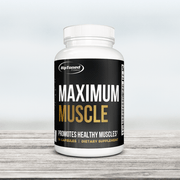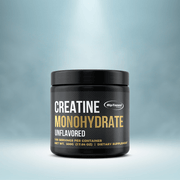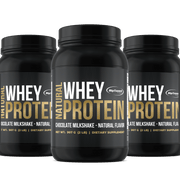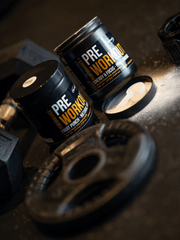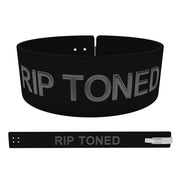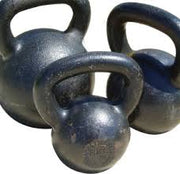Are you lactose intolerant and wondering if whey protein powder is safe for you? You're not alone. Many people who are sensitive to dairy products often avoid whey protein because it comes from cow's milk. However, there are different types of whey protein powder available in the market, each with varying levels of lactose.
Whey protein is a popular supplement among athletes and fitness enthusiasts for its ability to aid muscle recovery and growth. But if you have lactose intolerance, consuming whey protein can lead to discomfort such as bloating, gas, and diarrhea.
In this article, we will discuss the basics of whey protein powder and how it affects those with lactose intolerance. We'll also explore alternative options that are suitable for individuals with dairy sensitivities. So, if you're curious to know if whey protein powder is safe for lactose-intolerant individuals, keep reading!
Understanding Whey Protein Powder
Whey protein is a by-product of cheese production, making it a dairy-derived product. It is a complete protein containing all nine essential amino acids, making it an ideal choice for muscle recovery and growth.
There are three types of whey protein powder: concentrate, isolate, and hydrolysate. The concentrate contains the highest amount of lactose because it undergoes minimal processing. Isolate, on the other hand, undergoes further filtration to reduce lactose content and increase protein concentration. Hydrolysate is a pre-digested whey protein that is easier to absorb but also contains a higher price tag.
Individuals with lactose intolerance may experience discomfort when consuming whey protein concentrate or isolate due to its high lactose content. However, some may still tolerate small amounts of whey protein without any adverse effects. It's essential to listen to your body and consult with a healthcare professional before adding whey protein powder to your diet.
Alternatives To Whey Protein Powder
If you're lactose intolerant, there are several alternatives to whey protein powder that you can try. Plant-based protein powders such as soy, pea, rice, and hemp are all suitable options for individuals with dairy sensitivities.
Soy protein powder is a complete protein source and contains all essential amino acids. Pea protein is easily digestible and has an amino acid profile similar to whey protein. Rice protein is also gentle on the stomach and rich in essential amino acids. Hemp protein is a good source of omega-3 fatty acids and contains all essential amino acids.
Other alternatives to whey protein powder include egg white protein, collagen peptides, and bone broth protein. These options are also dairy-free and may be easier for lactose-intolerant individuals to digest.
It's important to note that some plant-based protein powders may not have as high of a protein content as whey protein powder. Therefore, it's crucial to check the label and calculate your protein needs before purchasing an alternative.
Is Whey Protein Powder Ok For Lactose Intolerant
Now, the main question is, is whey protein powder ok for lactose-intolerant individuals? The answer is not a simple yes or no. It depends on the individual's level of lactose intolerance and their body's ability to tolerate small amounts.
If you have severe lactose intolerance, it's best to avoid whey protein concentrate and isolate as they contain higher levels of lactose. However, you may be able to tolerate whey protein hydrolysate or a small amount of whey protein concentrate or isolate without experiencing discomfort.
Plus, with the wide variety of alternative protein powder options available, there is no need to rely solely on whey protein powder. It's essential to listen to your body and choose the best option that works for you and your dietary needs. If you're unsure, consult with a healthcare professional or a registered dietitian for personalized recommendations.
Benefits Of Whey Protein Powder For Lactose-Intolerant Individuals
If you're lactose intolerant and can tolerate whey protein powder, there are several benefits that you can reap from incorporating it into your diet. Whey protein is an excellent source of high-quality protein, essential for muscle recovery and growth.
Additionally, whey protein also contains other nutrients, such as calcium and vitamin D, which are beneficial for bone health. It's also low in calories and can be easily incorporated into meals or snacks to increase protein intake without adding excess calories.
Furthermore, whey protein powder is a convenient option for individuals with busy lifestyles who may struggle to consume enough protein from whole food sources. It can be easily added to smoothies and baked goods or mixed with water or milk as a quick and easy protein shake on the go.
Also, for athletes or individuals who participate in intense physical activity, whey protein powder can help replenish lost nutrients and aid in muscle recovery after a workout.
Should You Try Whey Protein Powder If You're Lactose Intolerant?
The answer to this question ultimately depends on your body and its ability to tolerate whey protein. If you're severely lactose intolerant, it's best to stick to alternative options. However, if you can tolerate small amounts of whey protein without any adverse effects, it may be a suitable option for increasing your protein intake.
It's important to note that everyone's body is different, and what works for one person may not work for another. It's crucial to listen to your body and consult with a healthcare professional or registered dietitian before making any significant changes to your diet.
Plus, with the wide variety of alternative protein powder options available, there's no need to limit yourself to just whey protein powder. Experiment with different types and sources of protein to find what works best for your body. Remember, it's about finding a balance that supports your health and dietary needs.
Tips For Choosing The Right Whey Protein Powder As A Lactose-Intolerant Individual
If you've decided to give whey protein powder a try, here are some tips to help you choose the right one as a lactose-intolerant individual:
- Opt for whey protein isolate or hydrolysate instead of concentrate.
- Look for "lactose-free" or "low-lactose" options.
- Avoid flavored powders that may contain added lactose.
- Read the ingredient label carefully, as some protein powders may also contain milk-based ingredients such as casein or whey peptides.
- Consider getting a sample or smaller-sized container to test your tolerance before purchasing a larger quantity.
- Consult with a healthcare professional or registered dietitian for personalized recommendations.
By following these tips and choosing the right whey protein powder, you can still reap the benefits of this popular supplement, even if you're lactose intolerant. Remember to always listen to your body and make choices that support your overall health and well-being.
FAQs
Can people who are lactose intolerant safely consume whey protein powders?
While most whey protein powders contain some lactose, the tolerance level can vary among individuals with lactose intolerance. Whey protein isolate, in particular, has a lower lactose content and may be better tolerated.
Are all whey protein supplements the same when it comes to lactose content?
No, not all whey protein supplements are the same in terms of lactose content. Whey concentrate typically contains higher levels of lactose. In contrast, whey protein isolate undergoes additional processing to remove most of the lactose, making it a potentially suitable option for those with lactose intolerance who still wish to benefit from muscle protein synthesis promoted by whey protein.
What are the best protein supplements for someone with lactose intolerance who wants to build muscle?
For individuals with lactose intolerance looking to enhance muscle protein synthesis, plant-based protein supplements, such as brown rice protein or pea protein, are excellent alternatives. They provide a comparable amino acid profile to whey protein without lactose, thus reducing the risk of digestive discomfort.
How can I tell if a whey protein supplement is low enough in lactose for me to tolerate?
To determine if a whey protein supplement is low in lactose, check the labeling for terms like "whey protein isolate" or "lactose-free." Additionally, some brands specifically cater to those with sensitivities and will indicate the exact amount of lactose present.
Conclusion
In conclusion, while whey protein powder may not be suitable for all lactose-intolerant individuals, it can still be a beneficial and convenient source of high-quality protein for those who can tolerate it. With the wide variety of alternative options available, there's no need to limit yourself to just whey protein powder.
Remember to always listen to your body and make choices that support your health and dietary needs. Consult with a healthcare professional or registered dietitian for personalized recommendations, and experiment with different types of protein to find what works best for you.
With proper research and consideration, you can make informed decisions about incorporating whey protein powder into your diet as a lactose-intolerant individual. So, consider giving it a try and see if it works for you. Remember, maintaining a balanced and nutritious diet is key to supporting your overall health and well-being.
























